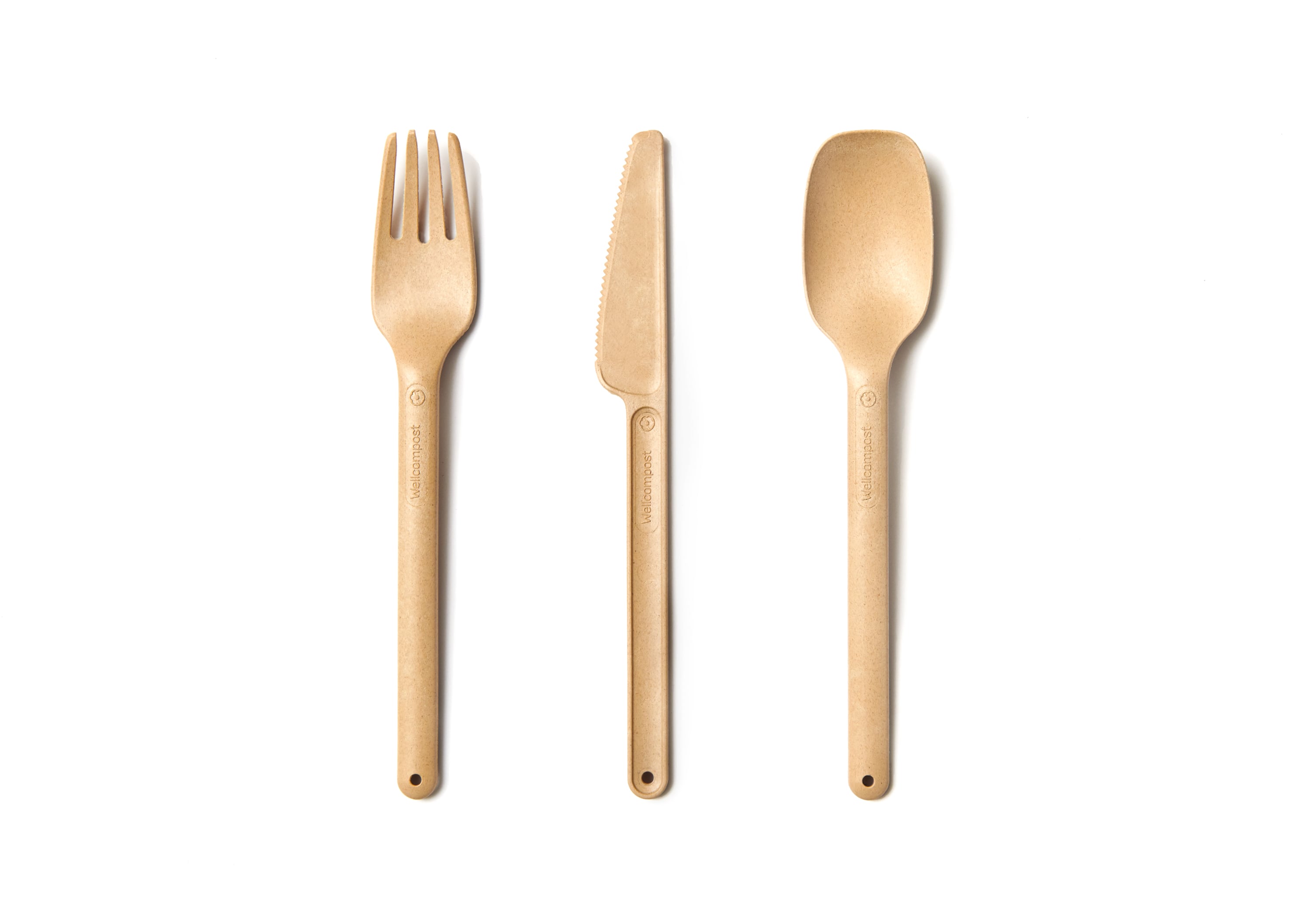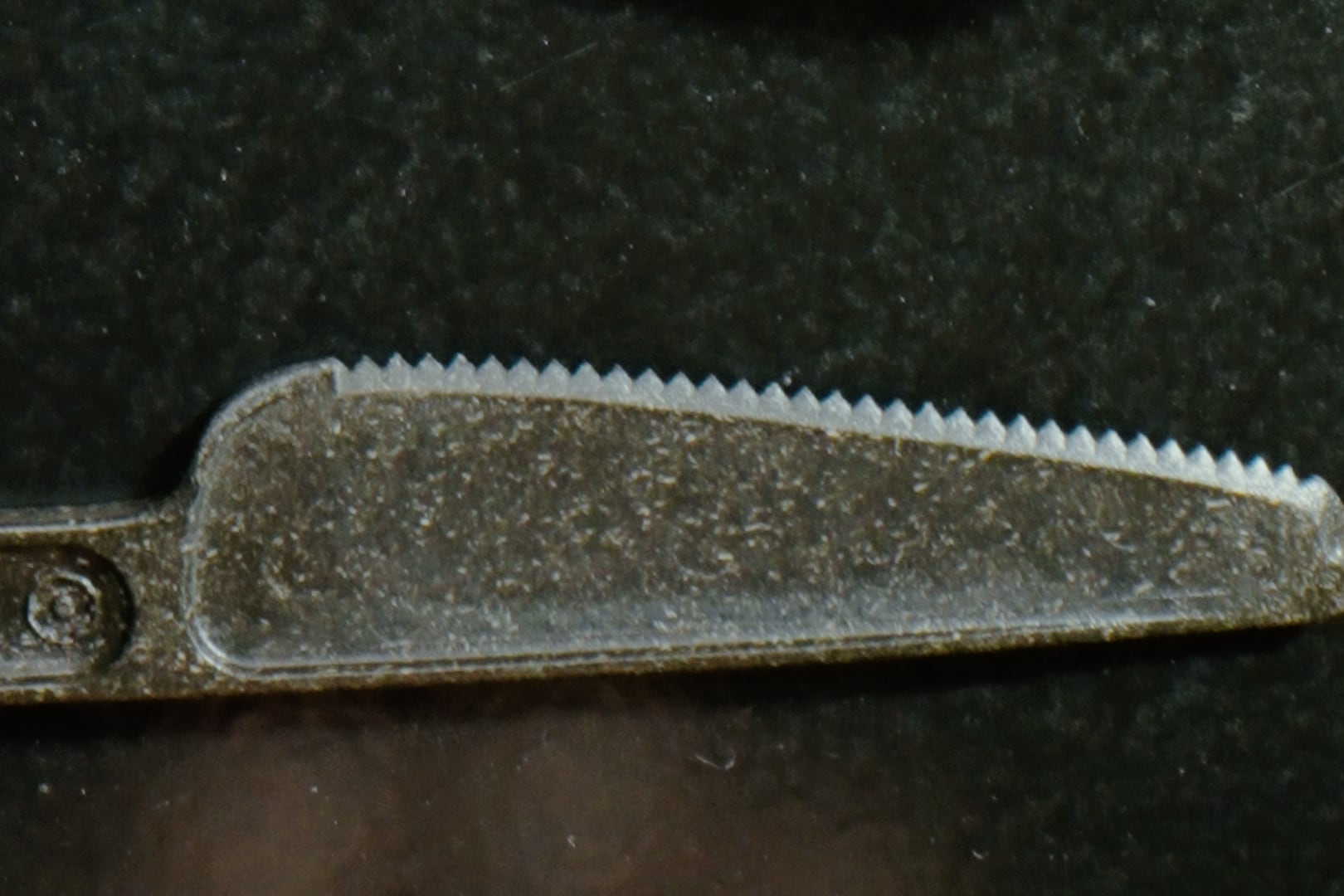Winner | Circular Design | 2021
Circular Eating
Disposable plastic articles – drinking straws, disposable cutlery, ear sticks, shopping bags, etc. – have a very bad image in light of climate change and the dramatic littering of the world’s oceans. In some countries (in the EU since July 2021) they are now banned. Switzerland decided against a ban, but sustainable alternatives for these practically indispensable products are also needed in this country. With this in mind, Fluidsolids, a Swiss company known for its bioplastic made from residual vegetable waste, decided to collaborate with designer Lukas Scherrer to develop a disposable cutlery set that is both ecologically and functionally compelling. Marketed under the name Wellcompost, the product meets the criteria of the circular economy. The plastic used for this purpose is a biocomposite obtained from regionally accrued materials with comparatively little energy input, which can be composted after use without leaving any residues – even on home compost. The design deliberately conveys a high-quality impression. Thanks to very careful attention to detail, it has also been possible to eliminate the notorious weak points of conventional disposable cutlery – sharp edges, flabby handles, blunt knife edges, etc. -have been eliminated from the design.
Comments of the nominators
Of course, it would be best if products like disposable cutlery were not needed in the first place. How utopian this is has been shown once again in times of a pandemic. Wellcompost presents itself as an innovative, holistically conceived product development that is also convincing in functional terms. Wellcompost clearly sets itself apart from numerous pseudo-ecological competitor products currently pushing onto the market with its unbeatably favourable eco-balance.

More projects from edition 2021
